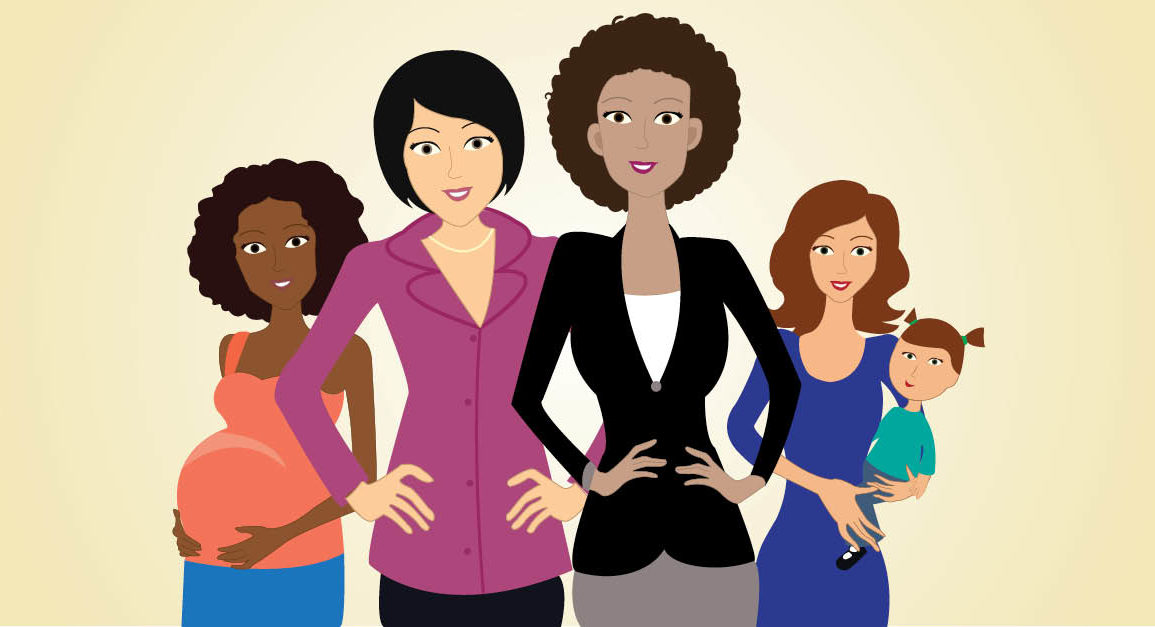Millennial women are increasingly choosing not to make childbearing their priority as many opt to wait until later in life or choose not to have children at all. Birth rates among Millennials in their 20s declined more than 15 percent between 2007 and 2012, according to a recent Urban Institute Study. Additionally, the U.S. Census Bureau’s most current population survey reports that nearly half of women between ages 15 and 44 are childless.
One popular theory for the movement women are making from parenting is the perceived difficulty of balancing a successful career with a full-time parenting gig for women. A 2013 Pew Research Center study found that working mothers are more likely to say that family obligations interrupted their career advancement than working fathers. Natali Cavanagh, a sophomore at Ball State University, is one Millennial who doesn’t want to have kids. “You have to pick and choose; you can’t have the world,” she said about attempting to balance career and family life.
Though still in the definite minority, a growing number of people agree with Natali’s sentiment. Twenty-two percent of respondents to a 2013 Pew Research survey on the best time for a working woman to have children answered that having no kids at all was the best move. The other respondents were split, with 36 percent answering that early in a woman’s career is the best time, and 40 percent saying that the best option for a woman is waiting until she is well-established in her career.
The discord among these responses makes sense when considering the potential consequences childbearing can have on a woman’s career path. Having children directly after completing education can create a large gap in a woman’s resume in terms of career experiences, which can set her back from advancing to higher positions in companies or organizations. Having children later in a career, however, can make maintaining a high level of performance in a demanding position stressful and difficult. Though many Millennial women may want to have children, their career aspirations may have to come first.
For Dagney Faulk, director of research in Ball State’s Center for Business and Economic Development, the environment of her chosen field contributed to an emphasis on making childbearing work around a woman’s career goals. “When I was in graduate school, several of the female professors were in their mid to late 30s having children, so that was the example I saw. They waited until after they had tenure, and then had children,” Dagney said.
Dr. Lisa Pellerin, Director of the Women’s and Gender Studies Department at Ball State University, acknowledged that while career is always a consideration, it is not the only reason Millennial women choose not to have children: “There are some women in our society who put off having children because of their jobs, and there are other women in our society who do not; the Millennial generation is not a monolith in which everyone behaves the same way.”
Another consideration is the cost of raising a child in American society. Raising a child from birth to the legal age of adulthood costs $245,340 on average, according to an annual report from the U.S. Department of Agriculture. Though estimates vary depending on the cost of living and the type of lifestyle one chooses to lead, meeting a child’s basic necessities while also giving it the tools for success can be a costly endeavor for a couple or single mother to take on. This estimate also does not include the rising price of college education, which can add an additional amount of at least $23,410 based on a recent College Board report of the cost of a “moderate college budget.”
Many Millennial couples and single parents have a hard time affording the expenses of supporting children on top of their own costs of living.
“The difference now is that most families, given the cost of living and wage rates, need more than one working adult to support a middle class lifestyle for their family,” Lisa said. “We have a situation now where a lot of people want to have children, but are wondering how they can afford to do it, how they can afford to go for a period of time from two incomes to one when they still have a mortgage and a car payment and student loans to pay off.”
For couples and single parents who are working full-time, daycare is also a costly consideration. The average cost of daycare in the United States is $972 a month, according to the National Association of Child Care Resource 7 Referral Agencies.
Dagney, who went back to work after having her two children, felt the effects of daycare on her wallet: “I felt like I got a raise once my children started kindergarten.”
Beyond career and costs, however, many Millennial women are simply feeling more comfortable embracing their freedom to find fullfilment outside of childbearing without the risk of social alienation.
Though social acceptability of the choice not to have children is not total, it has increased significantly in recent years. When asked whether adults without children “lead empty lives” in a 2002 General Social Survey, 59 percent of respondents answered that they did not, a 20 percent increase from results gathered on the same survey in 1988.
At one time in history, social acceptance of this choice was almost non-existent. Lisa said this has changed. “The social roles that people were expected to fill was that men were supposed to be responsible family men and women were supposed to be wives and mothers; for the people that didn’t fill those roles, they were subject to criticism,” Lisa said. Now that social alienation is not a direct effect of choosing to remain childless, more and more Millennial women feel comfortable and confident in their personal choices about childbearing.
Dagney has also noticed a shift in public support of a woman’s choice to have children. “Thank goodness we have a choice now of when and if you have children—it wasn’t that case until the 60s. We didn’t really have the option of having a career and a family. I’m thankful to live in a time when we have options.”
Natali has felt support in her decision not to have children from the community around her. “Just looking on campus and meeting different women, it almost feels like a feminist revolution,” she said. “I don’t have to feel pressured by gender roles and gender stereotypes to be a certain way; I’m still a woman if I am not a mother or a wife.”
Now, more than ever, women are embracing their right to view childbearing as just one of the many possible paths to a full and accomplished life.





